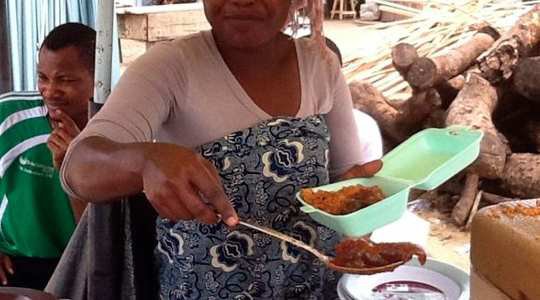People from all over the world can find their identity in a particular community when they speak and understand even the local parlance from that place.
In Nigeria, there are also certain slangs that stand as a test to determine if you are a newcomer to the community or not. Some of these slangs come from Pidgin while others originate from local languages such as Yoruba.
Whichever it is, some of these slangs would be hard to explain to a non-Nigerian. Foreigners might have a hard time understanding these slangs and locals might have a hard time explaining them. Here are a few of the slangs unique to Nigeria street life.
1. Ehen!
This exclamation has different interpretations, depending on the context in which it was used. It could mean “I get it”, “and so?” “yes”, “okay”, “continue”, “as i was saying”, “that reminds me”, etc.
2. Jara
Jara is a noun derived from the Yoruba language and it means to add extra or give a freebie after something has already been bought or paid for, at the seller’s discretion. E.g. “Please add jara”.
3. Osha pra pra
This salutation is used when one is praising another, which is loosely translated to mean “you are dope!”. It is mostly used in the street to hail/greet a friend or acquaintance who is passing by.
4. Ajebutter
Ajebutter, ajebo, ‘bota’ or ‘botti’, simply refers to one who is born with a silver spoon. It can be loosely translated to mean “bourgeoisie”. E.g. “That babe is an ajebutter”. In contrast, someone who came from average or humble beginnings is referred to as an ‘Ajepako’.
5. Lepa/Orobo
Lepa is a noun that refers to a sexy slim woman. E.g. “That lepa babe is hot”. Orobo is loosely the opposite of lepa. It refers to a sexy plump/ thick woman. It can also be used as a derogatory remark.
6. Ashewo/Ashana
This noun is slang for sęx workers. It can also be a derogatory term. It can be heard in the songs of several Nigerian popular musicians. A typical example is Flavour Nabania’s ‘Nwa Baby’.
7. Amebo
This word is used to refer to a person who likes to gossip or spread gossip and cannot be trusted. It can also be used to refer to gossip itself. E.g. “You too like amebo” or “That girl is an amebo”.
8. Abi/shey/ba
Abi, shey or ba are slang that act sort of like punctuation. They are mostly used for confirmation after a statement, thereby turning it into a question. They are like the English “right?” E.g. “You are coming for my party, abi/shey/ba?”
9. Over-sabi
This is a noun referring to someone who is a busy-body, or mocking someone who over-performs his/her intelligence/knowledge. E.g. “I did not ask you, over-sabi.”
10. Kolo
This verb means to go crazy or mad. This can mean literally or metaphorically depending on the context. E.g. “He don kolo”.
The post SON OF THE SOIL! Here Are Slangs And Local Expressions That Only A Nigerian Can Understand appeared first on illuminaija.









